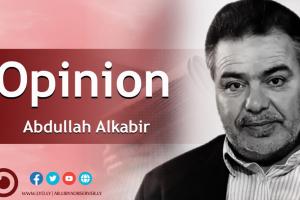By Abdullah Alkabir, Libyan political writer and commentator
The Government versus the House of Representatives and the High Council of State

Removing the conflicting political entities through elections, foremost the House of Representatives (HoR) and the High Council of State (HCS), has become a pressing matter to make the change, and advance to a new stage that paves the way for addressing all outstanding issues, which will not receive any interest from these entities, that are consumed by the project of remaining in their positions, and have only one goal; extend this stage indefinitely, seek more power, and seize the maximum amount of financial resources possible, to finance their survival and conflict. These facts have become known to the majority of the people, the international parties supporting the elections, as well as to UNSMIL.
After the recent stances, and statements of UNSMIL, European countries, and the USA, the room for maneuvering for the HoR and the HCS began to narrow gradually. UNSMIL rejected the roadmap proposed by the two houses as deceptive bait, claiming that the electoral laws had been completed, and there was nothing left but to form a government that would supervise the implementation of elections.
In fact, the truth is that these laws are still subject to controversy and rejection, and the joint committee that produced them did not care about UNSMIL’s observations, nor the UN envoy’s calls for further consultation with all actors, so they become applicable, in addition to some observations made by members of the House of Representatives, pending the approval of the HCS.
As for the roadmap to form a new government, and postpone elections for eight months, it only took one session in both chambers to accept and approve it, for the Speaker of the House of Representatives to announce the conditions for candidacy for head of such government.
The Government of National Unity realizes that it is exclusively targeted to be overthrown, so that portfolios such as ministries, boards and agencies of the new government, to be formed by the HoR and the HCS, be shared with their close political and military parties. However, its position is still strong in the face of the House of Representatives and the state, despite all the reservations, and all corruption accusations, and with strong alliances internally and externally, and the refusal of active international parties to extend the transitional stages it would be hard for the HoR and HCS to oust the GNU and implement their agreed roadmap.
Recent developments put the UN mission in an open confrontation with the HoR. The UN envoy gave up the diplomatic language, in his speech before the Forum of Elders of Fezzan, and clearly said, "The new Libya can only be built through an electoral process, through which members of parliament and the head of state are elected. When a new government is elected, stability will prevail in the country, and whoever wants transitional arrangements and other transitional governments wants to share the cake, and history will remember that.”
However, Bathily retracted a little from this intensity, after two days of statements and counter-statements, from members of the House of Representatives, and indeed, he met with Aqila Saleh and Khaled Al-Mishri, and he made statements to Al-Jazeera channel praising the laws presented by the joint committee, and considered them a step forward, considering the existence of two governments an issue that requires a solution, but he reaffirmed the need for the participation of all political parties to reach a comprehensive agreement.
Bathily has not yet found the required support from the international parties to bypass the two chambers, and this bypassing seems impossible without such support, and therefore he cannot launch any initiative that excludes them from participation, but they (HoR and HCS) do not want any participation from other parties, because it would end their hegemony over the political process, and their acceptance of this participation in the Tunis-Geneva forum, was imposed by different international circumstances, with strong support from the USA for the former acting envoy, Stephanie Williams.
In view of these conflicting positions, the confrontation is poised for escalation between the UN envoy and the House of Representatives, the search for a path leading to elections will be prolonged, with attempts by some parties to soften UNSMIL's position over the change of government.
Disclaimer: The views and opinions expressed in this article are those of the writer, and do not necessarily reflect those of the Libya Observer



